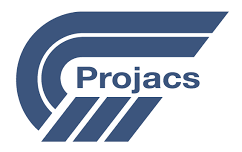
Project's Advanced Planning and Execution Management Processes (PMP Workshop 2) – Certified Program
Course ID: 2508250101247EGI
Course Dates : 25/08/25 Course Duration : 5 Studying Day/s Course Location: London, UK
Language: Bilingual
Course Category: Professional and CPD Training Programs
Course Subcategories: Leadership and Management Excellence
Course Certified By: * Projacs Academy
* Professional Training and CPD Programs
Certification Will Be Issued From :
KSA
Course Fees: £4,838.34
Vat Not Included in the price. VAT may vary depending on the country where the course or workshop is held.
Click to Pay
Date has passed please contact us Sales@e-s-hub.com
Course Information
Introduction
In an era of rapid technological advancements, shifting market dynamics, and increasing stakeholder expectations, the ability to plan and execute projects with precision has become a cornerstone of organizational success. Projects are no longer isolated endeavors but interconnected systems that require strategic alignment, resource optimization, and adaptive management. The discipline of project management, particularly in advanced planning and execution, equips professionals with the tools and methodologies to navigate these complexities. This course is designed to bridge the gap between foundational project management knowledge and the advanced competencies required to lead high-impact initiatives.
The challenges faced by project managers today are multifaceted. From managing cross-functional teams across geographies to ensuring compliance with evolving regulatory frameworks, the demands are both diverse and dynamic. Traditional project management approaches often fall short in addressing these modern challenges. For instance, a recent study by the Project Management Institute (PMI) revealed that 37% of projects fail due to poor planning, while 45% cite inadequate risk management as a critical factor. These statistics underscore the urgent need for advanced training that integrates proven frameworks like Agile, Lean, and Waterfall methodologies with contemporary best practices.
This workshop seeks to address these gaps by focusing on advanced planning techniques, execution strategies, and performance monitoring. By leveraging real-world case studies, such as the successful turnaround of a delayed infrastructure project in Southeast Asia through agile sprints and stakeholder engagement, participants will gain actionable insights into overcoming common pitfalls. Additionally, the course incorporates lessons from established theories, including Kotter’s Change Management Model and Goldratt’s Theory of Constraints, to provide a robust theoretical foundation.
Mastering the content of this program offers significant benefits for both individuals and organizations. For professionals, it enhances career prospects by equipping them with sought-after skills in adaptive project leadership and data-driven decision-making. Organizations, on the other hand, benefit from improved project outcomes, reduced costs, and enhanced stakeholder satisfaction. A notable example is a Fortune 500 company that reported a 20% increase in project delivery efficiency after implementing advanced planning practices learned from similar workshops.
The relevance of this course extends beyond traditional project management roles. Industries such as healthcare, information technology, construction, and finance are increasingly adopting project-based structures to drive innovation and operational excellence. For instance, a hospital chain implemented advanced project execution strategies to streamline patient care processes, resulting in a 15% reduction in wait times. Such examples highlight the interdisciplinary applications of the course content and its potential to transform various sectors.
By engaging with cutting-edge tools, industry case studies, and interactive simulations, participants will emerge from this workshop not only as competent planners but as strategic leaders capable of driving transformative change. The emphasis on practical application ensures that the knowledge gained is immediately transferable to real-world scenarios, empowering participants to make a tangible impact in their professional environments.
Objectives
By attending this course, participants will be able to:
Analyze complex project requirements and develop comprehensive plans using advanced methodologies such as Agile, Lean, and Hybrid frameworks.
Evaluate project risks and design mitigation strategies aligned with organizational objectives.
Implement adaptive execution techniques to manage scope changes, resource constraints, and stakeholder expectations effectively.
Apply performance monitoring tools to track project progress and ensure timely delivery within budgetary limits.
Design communication plans that enhance collaboration and transparency among cross-functional teams.
Synthesize lessons learned from past projects to improve future planning and execution processes.
Assess compliance requirements and integrate ethical considerations into project management practices.
Who Should Attend?
This course is ideal for:
Project managers, team leaders, and consultants seeking to elevate their expertise in advanced project planning and execution. It is equally valuable for professionals in industries such as IT, construction, healthcare, and finance who are responsible for overseeing large-scale initiatives. Additionally, mid-to-senior-level executives involved in strategic decision-making will benefit from the course’s focus on aligning project outcomes with organizational goals. While prior exposure to project management concepts is beneficial, the course is structured to accommodate intermediate learners who wish to deepen their understanding and refine their skills.
Training Method
• Pre-assessment
• Live group instruction
• Use of real-world examples, case studies and exercises
• Interactive participation and discussion
• Power point presentation, LCD and flip chart
• Group activities and tests
• Each participant receives a 7” Tablet containing a copy of the presentation, slides and handouts
• Post-assessment
Program Support
This program is supported by:
* Interactive discussions
* Role-play
* Case studies and highlight the techniques available to the participants.
Daily Agenda
The course agenda will be as follows:
• Technical Session 08.30-10.00 am
• Coffee Break 10.00-10.15 am
• Technical Session 10.15-12.15 noon
• Coffee Break 12.15-12.45 pm
• Technical Session 12.45-02.30 pm
• Course Ends 02.30 pm
Course Outlines
Foundations of Advanced Project Planning
Overview of project management frameworks and their evolution.
Key principles of adaptive planning and scenario analysis.
Role of stakeholder engagement in shaping project objectives.
Introduction to tools for requirement gathering and scope definition.
Day 2:
Risk Management and Mitigation Strategies
Identifying and categorizing project risks using qualitative and quantitative methods.
Developing risk response plans and contingency measures.
Case study: Lessons from a failed IT implementation project.
Integrating risk management into daily project operations.
Day 3:
Execution Techniques and Resource Optimization
Best practices for managing scope changes and resource allocation.
Implementing Agile sprints and Lean workflows in execution phases.
Tools for tracking deliverables and maintaining quality standards.
Managing virtual teams and fostering collaboration.
Day 4:
Performance Monitoring and Reporting
Designing dashboards for real-time project tracking.
Analyzing key performance indicators (KPIs) to measure success.
Conducting mid-project reviews and corrective actions.
Communicating progress to stakeholders effectively.
Day 5:
Compliance, Ethics, and Continuous Improvement
Understanding legal and regulatory compliance in project management.
Ethical considerations in decision-making and resource utilization.
Capturing lessons learned and integrating feedback loops.
Final workshop: Creating an action plan for future projects.



















































